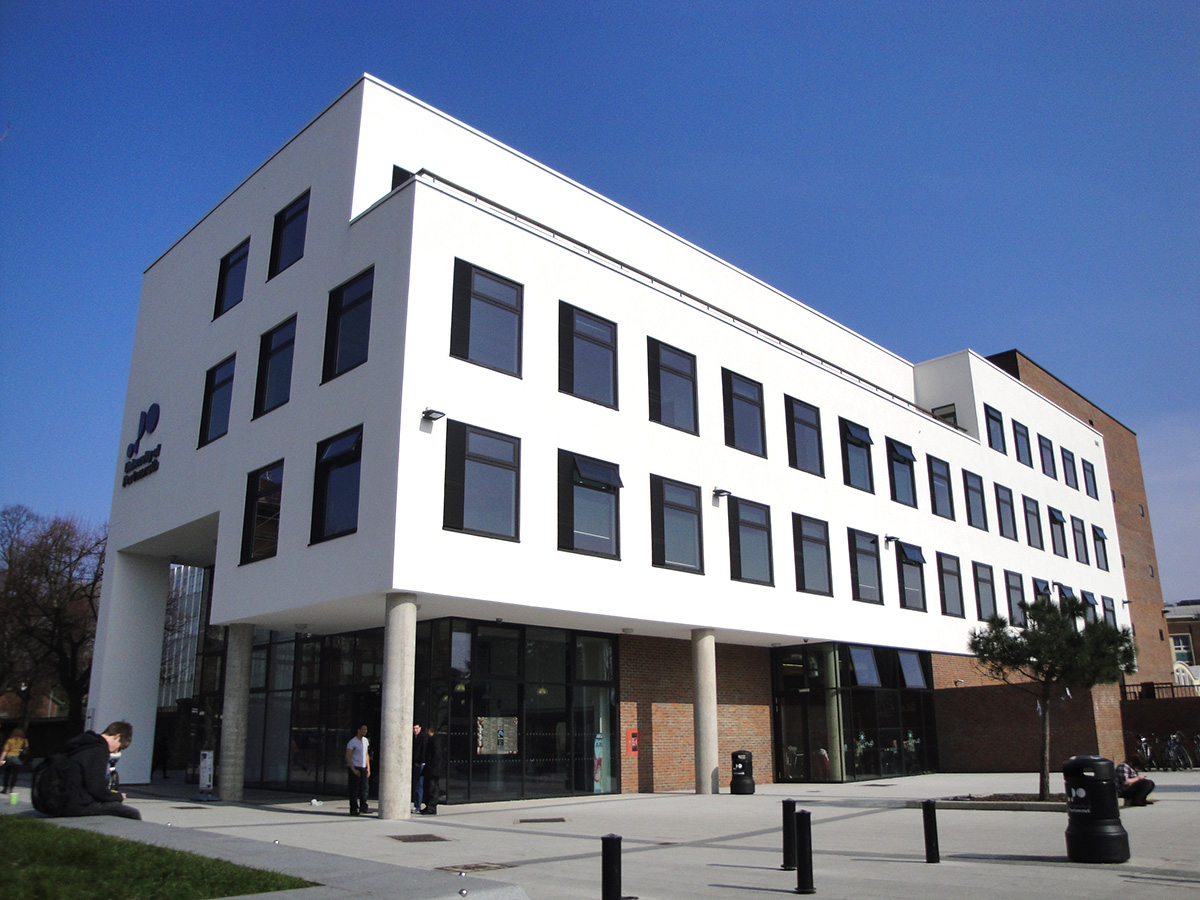University of Portsmouth
Portsmouth University is located in the city of Portsmouth, a large coastal port in Hampshire on the south coast of England. REQUEST INFORMATION
KEY INFORMATION:
The population of Portsmouth is 209,166. Portsmouth is 64 miles by road from London and has direct trains to London and most other major cities in England.



UG 19680
PG 4030



Six steps to University of Portsmouth
Our method to your success
FREE CONSULTATION MEETING
REPORT & INSTITUTION SHORTLIST
APPLY & RECEIVE AN OFFER
WOO HOO! YOUR OFFER IS ACCEPTED
ARRIVAL & POST ARRIVAL SUPPORT
WE ARE WITH YOU EVERY STEP OF THE WAY
LOCATION:
From Portsmouth harbour, ferry services run to France, Spain and the Channel Islands. The nearest airport is at Southampton which offers domestic flights as well as flights to destinations in Ireland, France, Spain, Italy, Germany and the Netherlands. London Heathrow and London Gatwick airports are some 60-90 minutes by road from Portsmouth. Gatwick Airport can also be accessed by rail via London Victoria and there are National Express coach services from Portsmouth to London Heathrow Airport. The average lowest temperature in the area is 0.5 degrees in January. The average highest temperature is 20 degrees in July.
REQUEST INFORMATION..

Request Information - University Courses
HISTORY:
Portsmouth University began life in 1869 with the founding of Portsmouth & Gosport School of Sciences and the Arts. In 1908 the School became the Portsmouth Municipal College and Library focusing on chemistry and engineering to educate engineers and others working on the docks in the city. During the 1960s the College was renamed Portsmouth Polytechnic and in 1992 it received University status and became the University of Portsmouth. In addition to the traditional sciences, it has gained a reputation for teaching in Dentistry, Sports & Exercise and in recent years, Cosmology.
LOCATION:
Portsmouth University is a campus university within a city location. The main University quarter is a group of buildings within the Guildhall area of central Portsmouth; this area contains most of the teaching facilities and halls of residence (with the exception of the Langstone student village and two halls, Rees and Burrell situated on Southsea Terrace on the city’s main esplanade). Langstone campus is located in Milton, on the eastern edge of Portsea, the island on which Portsmouth city is based. Portsmouth offers easy cycling and an efficient City Bus service. Students can also benefit from the University-owned inter-site shuttle bus service which operates throughout the day until midnight in term time.
RANKING:
University of Portsmouth is ranked between 501-600th in the Times Higher Education rankings. Portsmouth is ranked between 501-600th in the Shanghai Jiao Tong rankings and is not a member of the Russell group of universities.University of Portsmouth is ranked 115th in the National Student Survey Satisfaction rankings.
INTERNATIONAL:
There are currently around 3,000 international students at Portsmouth coming from 100 different countries, representing approximately 12% of all students.Pathway entry for international students - International College Portsmouth offers foundation courses leading to degree course entry.For more information, please visit Pathway & Foundation page.
SIZE:
The latest figures indicate over 23,600 students in total, of which around 19,680 are undergraduates, 4,030 are postgraduates, and another 120 are registered on other further education courses.
EMPLOYMENT:
HESA government statistics show that 97.5% of Portsmouth’s graduates are in employment or in further education 6 months after graduation. However, a breakdown of post-graduation employment by course, showing the split into professional/managerial positions, rather than general employment figures, is available from Unistats an independent source of university data. For more information, please visit the REF Information page.
FACILITIES:
The area offers a great deal of opportunity for maritime pursuits such as sailing – the University enters a team in the Cowes Regatta on the Isle of Wight every year. A four mile beach is a short walk from the city centre. Portsmouth enjoys a lively pub, club and café scene as well as cultural events and venues. The University is situated on an urban campus site into which are incorporated green spaces, cafes and shops. The Student Union hosts 150 clubs both sporting and social. In addition to its own TV and radio stations the University also has a choir, orchestra, wind band and big band. University productions are performed in the New Theatre Royal. The Space Gallery hosts art instalments within the University’s Eldon building which is home to its Creative Development and Cultural Industries faculty. The Spinnaker Sports Centre boasts indoor and outdoor sporting facilities.
ACCOMMODATION:
University owned accommodation comprises a number of halls of residence, both catered and self-catered. All are single rooms. Contract terms are 37 weeks. The University guarantees accommodation to all new international students and 75% of new UK/EU students for their first year. The halls of residence are mostly situated on the main Guildhall campus.The lowest price for a single room with shared bathroom and kitchen facilities is £100.00 per week.An example price for catered accommodation is £175.00 per week at Rees Hall.
COST:
International students
International undergraduate tuition fees:
Fees for full time undergraduate courses start at £16,200 for all Classroom based degrees (most Arts & Humanities subjects), rising to £18,300 for most Laboratory based subjects.
SUBJECT AREAS:
REF (Research Excellence Framework) was an independent government review conducted into the quality of research at UK universities and published in December 2014. This information highlights subjects of specialism within each university. We have listed all subject areas where at least 60% of the research conducted in these specific fields has been graded 3 or 4 stars. (4 stars being the highest ranking REF award). For more information, please visit the REF Information page.
ONLINE COURSES:
Portsmouth offers a wide range of undergraduate and postgraduate courses which can be studied flexibly to aid professional development. Subjects include Accounting, Economics and Finance, Art & Design, Business & Management, Computing, Education, Engineering, Health Sciences & Social Work, Law & Criminology, Modern Languages and Psychology.
LIFE AT University of Portsmouth
We have been helping overseas students gain entrance to University of Portsmouth for a number of years now, progressing to high profile careers in the UK. Find out more about this school below.
Review
Coming Soon
 LOOKING FOR AN ONLINE COURSE?
Our team can help you find a relevant course for your study.
BOOK A CALL
LOOKING FOR AN ONLINE COURSE?
Our team can help you find a relevant course for your study.
BOOK A CALL
DOWNLOAD YOUR FREE GUIDE TO A QUALITY UK EDUCATION
Sign up to our free Newsletter and you'll get a free copy of our guide to accessing a UK education to help you navigate the entire process.
REQUEST INFORMATION..
Get free instant access to exclusive content and join our monthly email guide
We’re with you every step of the way and will keep you updated on the latest UK education news. Find out more about joining.
